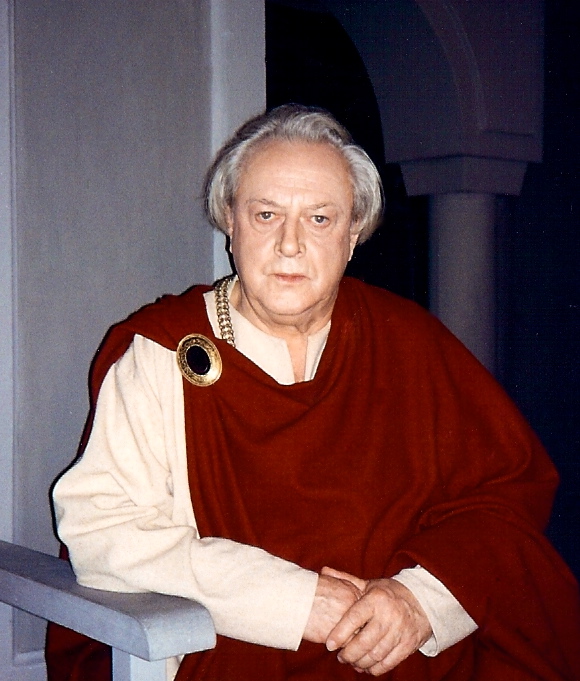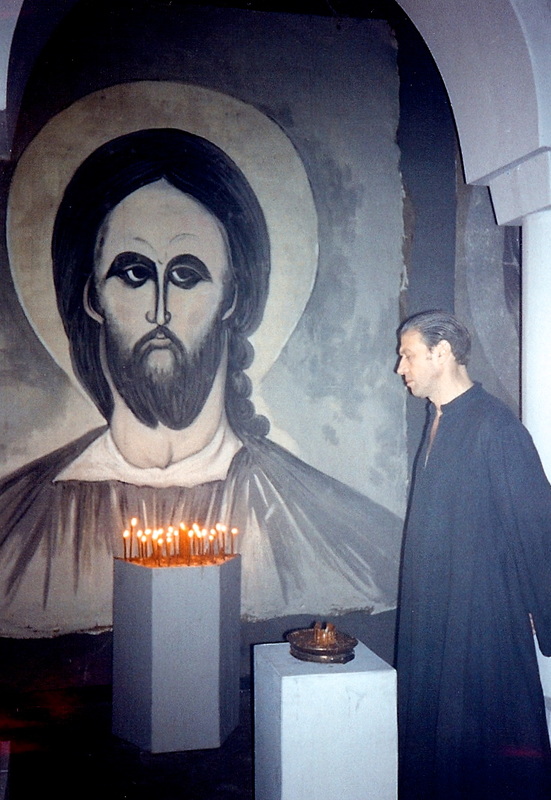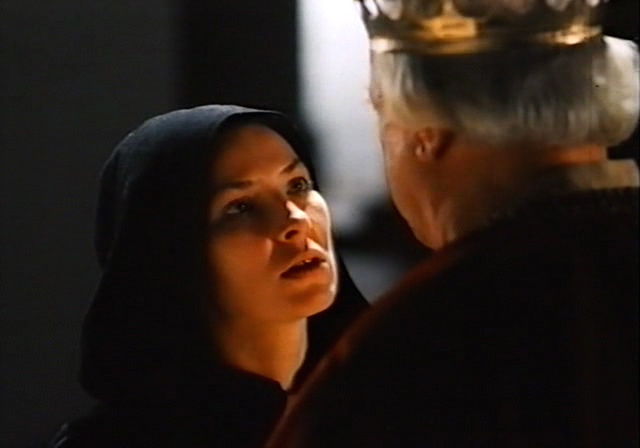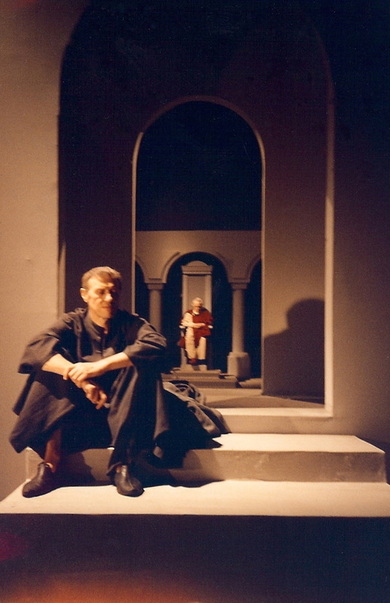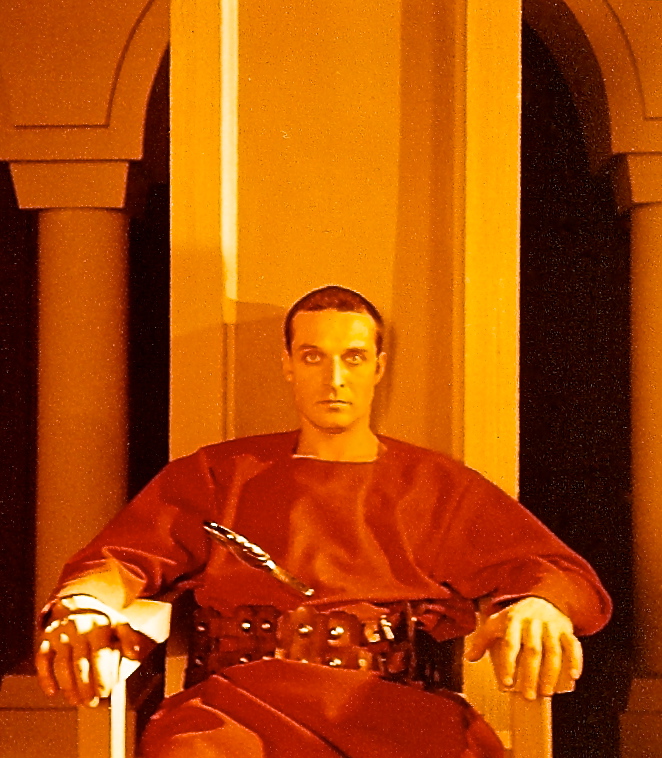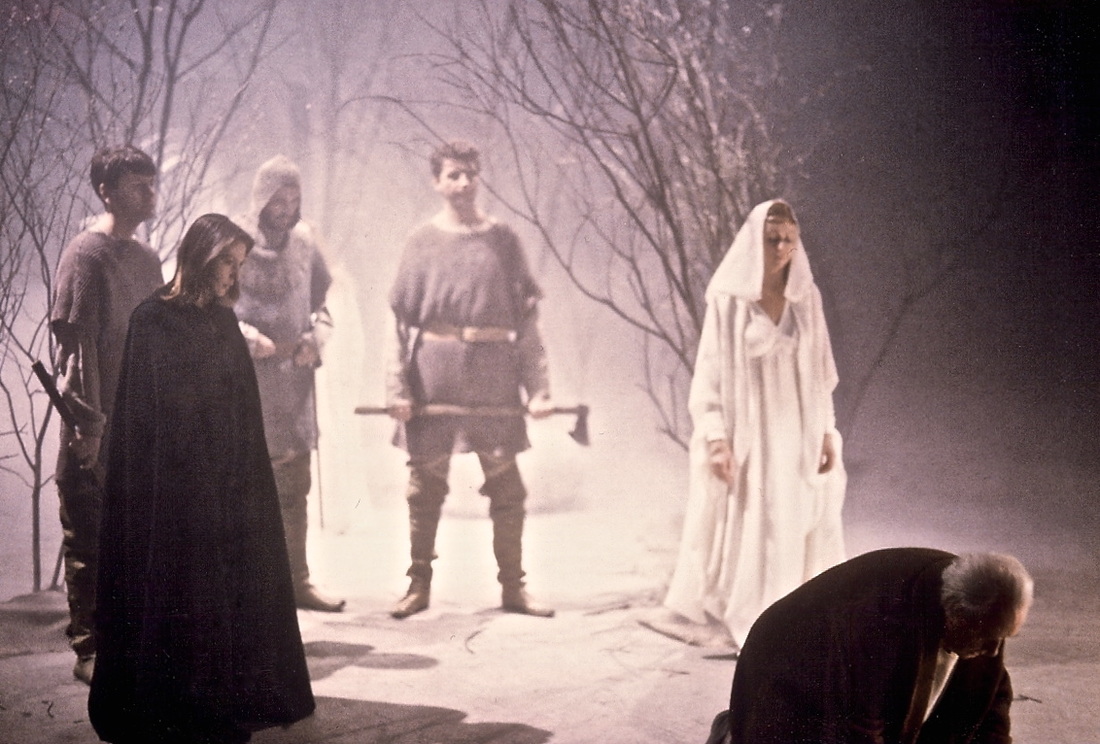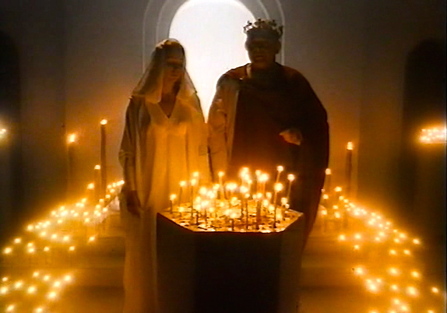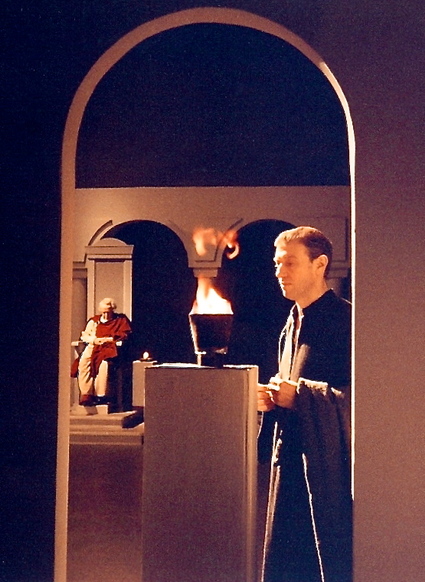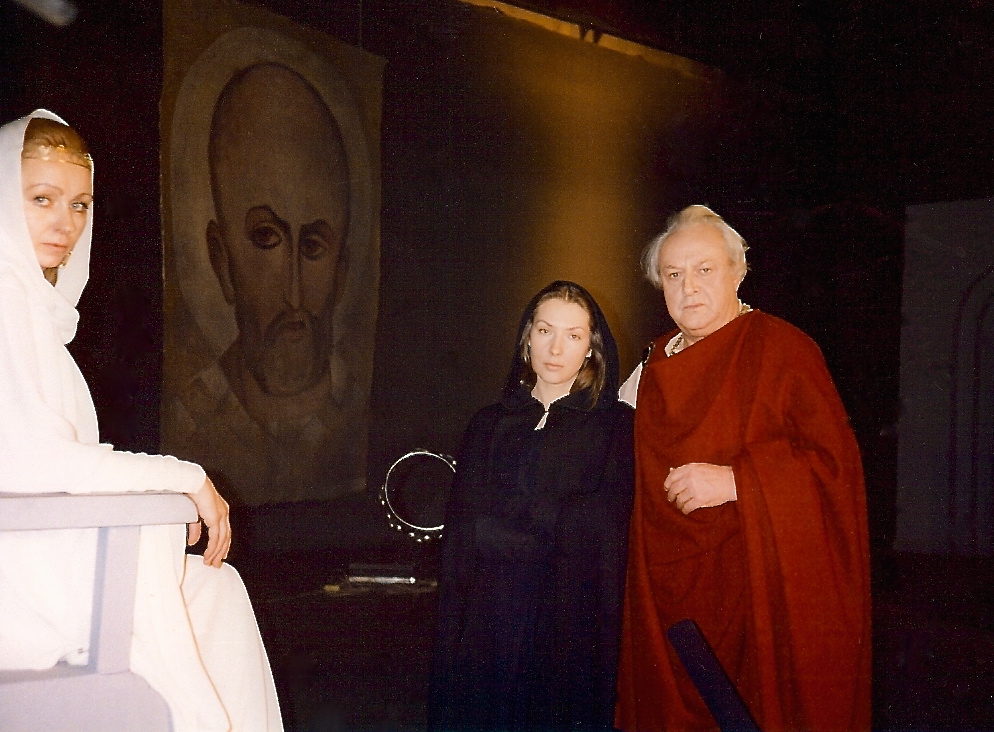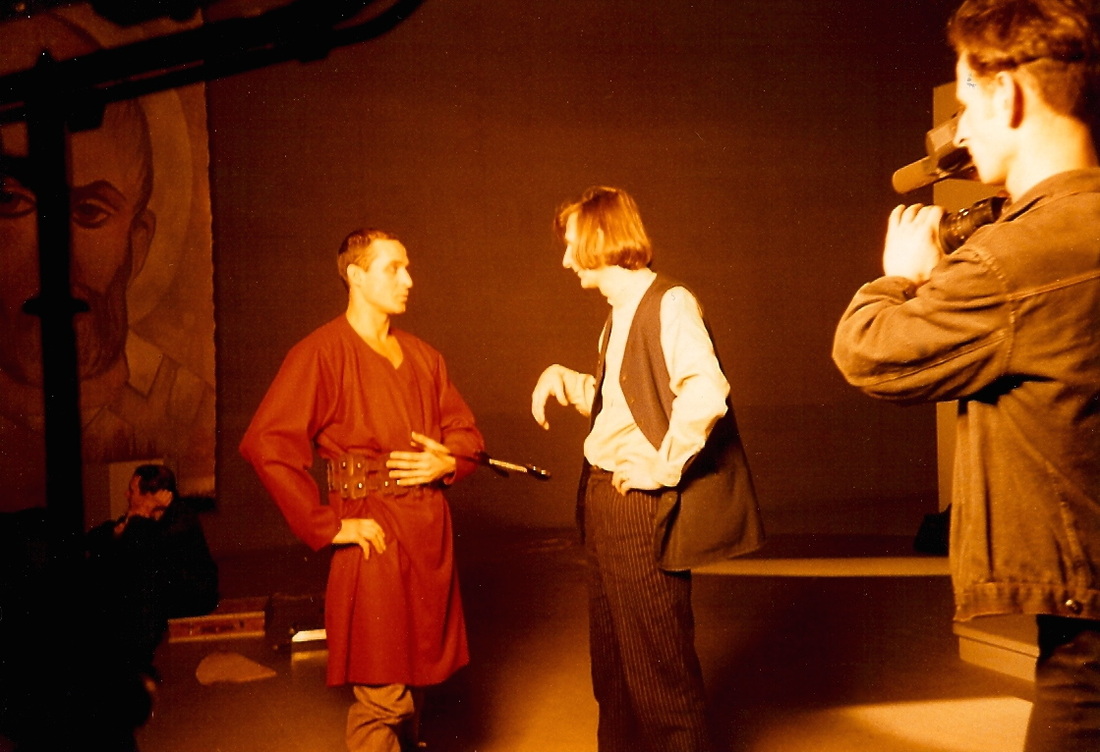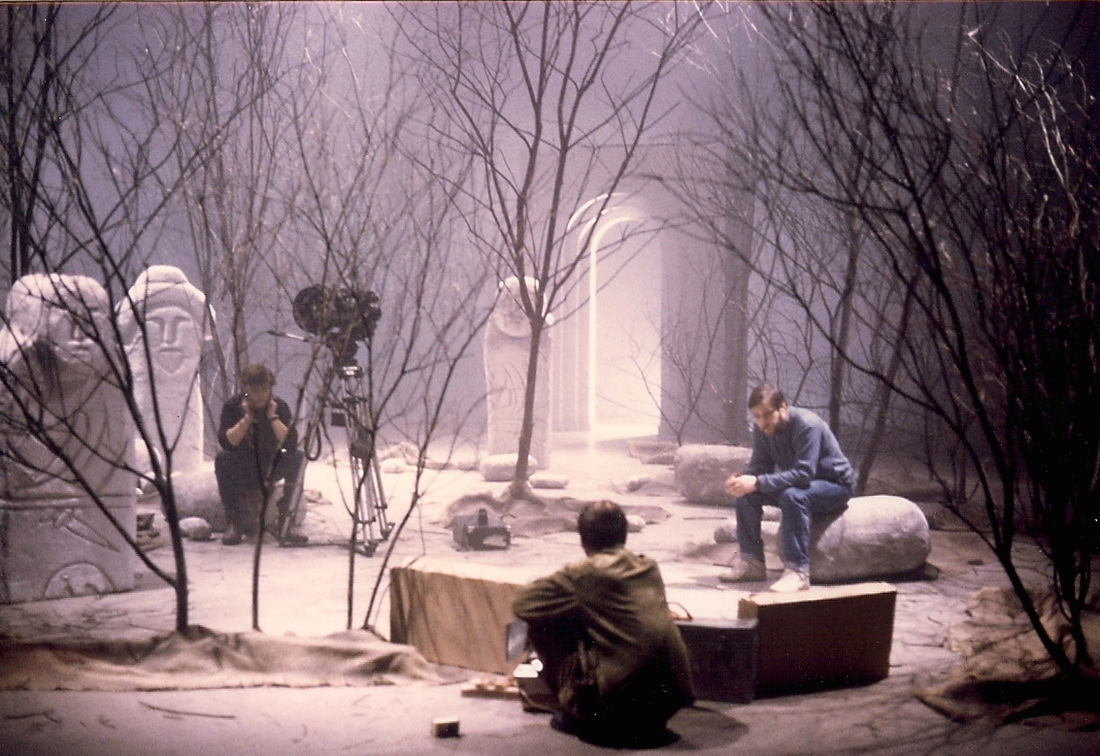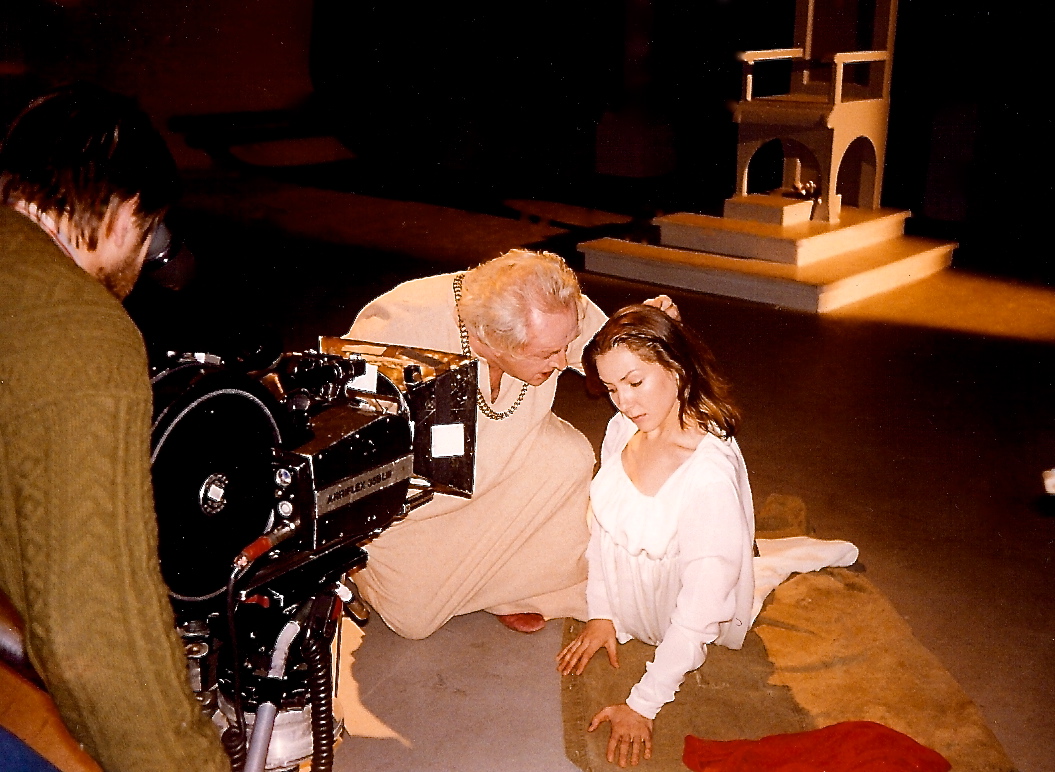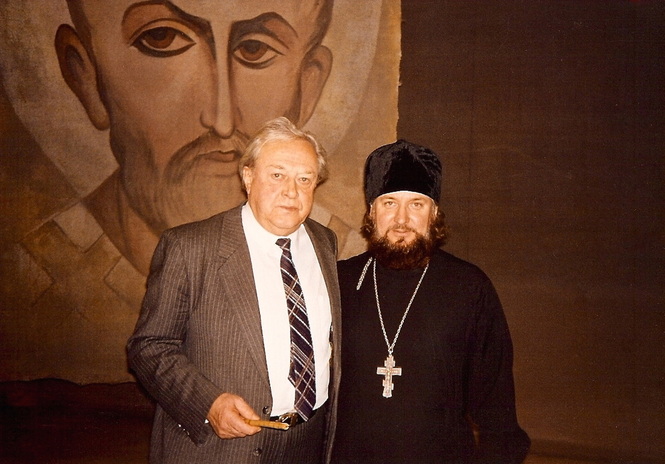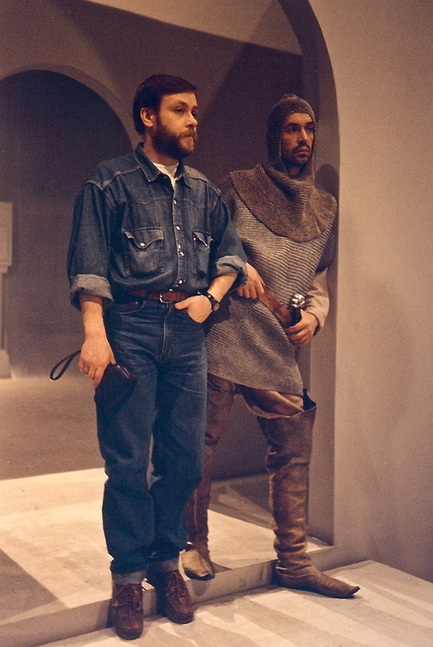|
"ST. VLADIMIR"
Based on the play St. Vladimir by Elena George Directed by Yuri Tomoshevsky Screenplay by Elena George Cinematography - Alexander Ustinov Principal Roles/Actors: Vladimir - Vladislav Strjelchik Rogneda - Natalia Danilova Starets - Sergei Dreiden Princess Anna - Elena George In other roles: Igor Volkov Oleg Melnik Igor Yakovlev Sergei Serin |
|
Vladimir, an illegitimate son of Prince Sviatoslav of Kiev, became the Prince of Novgorod around 970, and the Great Prince of Kievan Rus around 978, after he took Kiev by force with the help of a Viking army and treacherously killing his half-brother Yaropolk, the Prince of Kiev. In 988 Vladimir was baptized and instituted Christianity in Kievan Rus. The feast day of St. Vladimir is celebrated on July 15. SYNOPSIS Vladimir is near the end of his life. He feels the presence of Death and dares Her to show Herself to him. Instead, the ghost of his deceased wife Rogneda appears and forces him to confront his past and the many crimes he had committed in his quest for power. Rogneda is followed by other key figures from Vladimir’s life, including Yaropolk and his later wife Anna, a Byzantine princess whom he had married after his baptism. |
|
In his last hours on earth Vladimir looks back on his life of glorious achievements on the one hand, and the crimes he had committed on the other. He had achieved his dream of building a strong and prosperous state, but the blood of the thousands of his people whom he had killed because they refused to become Christians weighs heavily.
In the end, he comes to terms with what he had done in his life, the good and the bad, and is prepared to pay for his sins. But when he is shown the tragic events that will unfold after his death due to his doings, it is too much for him to bear. |
Photos from the Shoot
